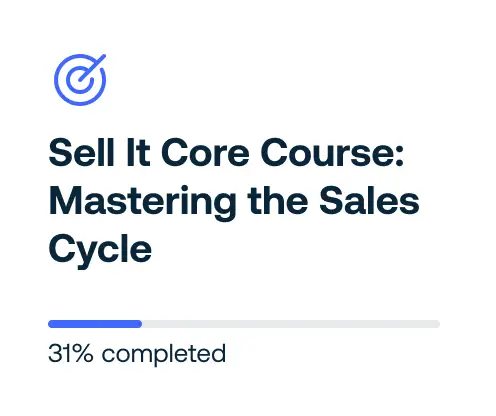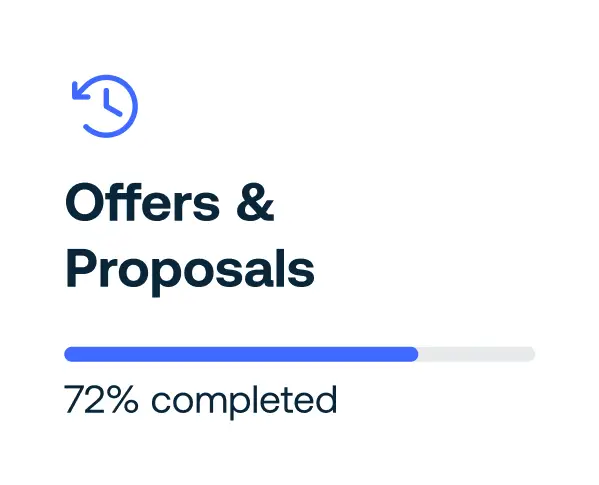We help you
SELL
PITCH
CLOSE
PUSH
HOOK
WIN
It
On-demand, live, and 1:1 trainings built to accelerate your business and make you more money.





Trusted by top brands







Join It
Grow your income with 30,000+ business owners, solopreneurs, freelancers, and independents from 128 countries.
-
 Real Estate Agents
Real Estate Agents -
 Mortgage Brokers
Mortgage Brokers -
 Consultative Sales Professionals
Consultative Sales Professionals -
 Insurance Agents
Insurance Agents -
 Entrepreneurs and Business Owners
Entrepreneurs and Business Owners -
 HR Director
HR Director -
 Small Business Owner
Small Business Owner -
 Corporate Executive
Corporate Executive -
 Independent Contractor
Independent Contractor -
 Real Estate Agents
Real Estate Agents
The premier entrepreneurial ecosystem for people who sell


Membership
Sell It Core Course: Mastering the Sales Cycle
Unlock the next level of income by implementing the proven sales method for today’s marketplace


Membership
Knowledge Base
Access a practical library of templates, step-by-step guides, and how-to explainers built to implement every step of the Sell It Sales System.


Plus Only
Project-Based Sprints
Complete an actionable project to implement within your business and be held accountable to results within project sprints


Pro Only
Sales Roleplay
Hone sales skills in interactive workshops, led by pros, mastering effective strategies collaboratively.
They
recommend
it

“Something every salesperson or entrepreneur needs to learn from.”
Daymond John
Star of ABC’s Shark Tank and Entrepreneur

“The strategies for growing your business and achieving financial success are unrivaled. This is the only sales training you’ll ever need.”
Farnoosh Torabi
Entrepreneur, Financial journalist, and Host of the “So Money” Podcast

“Smart, practical, modern advice for getting, keeping, and serving customers and clients. Whatever you do for a living, you’ll do it better.”
Daniel Pink
New York Times Best-selling Author
Membership
Accelerate your growth, from targeted courses to essential guides and templates.
/month
- Sell It Core Course: Mastering the Sales Cycle
- Library of in-depth courses
- Near-daily live workshops & recordings
- Knowledge base with hundreds of guides & templates
- Exclusive community of like-minded people who sell
- Access to member-only discounts on digital tools and services
Membership Plus
Unlock high-impact sprints and dynamic, live group coaching to supercharge your scaling journey
/month
- Membership Bundle
And…
- Year-round self-contained project-based courses done in small groups
- Small group coaching sessions
- Interactive workshops
- Membership Plus-only community
PRO
Built just for you, experience 1:1 business growth coaching from industry-leading experts in sales and marketing.
Custom pricing
- Membership Bundle
- Membership Plus Bundle
And…
- 1:1 business growth coaching
- Daily office hours with a business strategist
- Exclusive monthly workshops with Ryan Serhant
- Signature PRO-Only Community
Membership
Accelerate your growth, from targeted courses to essential guides and templates.
/month
billed annually
- Sell It Core Course: Mastering the Sales Cycle
- Library of in-depth courses
- Near-daily live workshops & recordings
- Knowledge base with hundreds of guides & templates
- Exclusive community of like-minded people who sell
- Access to member-only discounts on digital tools and services
Membership Plus
Unlock high-impact sprints and dynamic, live group coaching to supercharge your scaling journey.
/month
billed annually
- Membership Bundle
And…
- Year-round self-contained project-based courses done in small groups
- Personalized sprint project feedback
- Interactive workshops
- Plus-only community
PRO
Built just for you, experience 1:1 business growth coaching from industry-leading experts in sales and marketing.
Custom pricing
- Membership Bundle
- Membership Plus Bundle
And…
- 1:1 business growth coaching
- Daily office hours with a business strategist
- Exclusive monthly workshops with Ryan Serhant
- Signature PRO-Only Community
Working with a large team?
Not sure what plan is right for you?
How we use it
30,000 enrollees and counting…
Ask it
What are Sell It membership benefits?
Get ready to turbocharge your sales career with Sell It! Our membership is your golden ticket to a world of exclusive digital training, live workshops, and a treasure trove of sales templates and scripts. Join the ranks of the world’s fastest-growing sales community and arm yourself with the tools to boost your sales, amplify your earnings, and accelerate your career growth.
Benefits for Members:
- Unlimited access to our Member LIVE programming, offering real-time feedback from a panel of experts on everything from brand building to negotiation and social media marketing.
- Exclusive market expansion guides to supercharge your sales strategies and customer engagement.
- Network with over 26,000 members in our community, creating invaluable relationships and referral opportunities.
- Special offers on bootcamps and events, exclusively for members.
Member PLUS – All the standard perks, PLUS:
- Weekly LIVE Social Audits to refine your online presence.
- Monthly LIVE sprints and bootcamps with top sales professionals.
- Access to our elite Private Slack Community for insider tips and support.
What is Sell It PRO?
Revolutionize your sales approach with Sell It PRO, the ultimate sales coaching program tailored for the modern market. Ditch outdated methods and embrace a personalized coaching experience that targets your unique challenges and goals. With Sell It PRO, you’re not just learning; you’re evolving with one-on-one guidance from dedicated coaches, brand strategists, and performance experts available LIVE every day. Elevate your lead quality and market position to see real results fast. Click here to schedule an appointment with an admissions advisor.
Is there a free trial?
Absolutely! Dive into the Sell It experience with a 14-day free trial for our monthly Membership. Enjoy full access to all member benefits and see the difference firsthand. Note: Free trials are not available for Annual Membership, Membership Plus, or Sell It PRO.
Will I get to interface with Ryan Serhant?
Yes, indeed! We offer regular opportunities for members to interact with Ryan Serhant himself through various workshops each month. As you climb the membership tiers, your chances to engage with Ryan increase.
Are there any prerequisites or specific experience required?
Zero, zilch, nada! Sell It is designed for everyone from sales novices to seasoned pros. Elevate your network, lead flow, and sales prowess, all while joining a supportive community of peers.
Can I access Sell It Membership benefits on my phone?
Absolutely! Stay connected and keep learning with mobile, tablet, or desktop access to all Sell It workshops and resources. We know you’re on the go and have made it easy for you to access our trainings anywhere, anytime.
I am a Member. Where do I find my Sell It Member Dashboard?
Your Sell It Member Dashboard is your command center for all things sales, is just a click away. Access your guides, calendar, and live programming here.
What industries and professions is Sell It best suited for?
If you’re in sales or entrepreneurship, Sell It is your new best friend. We have 25,000 members across real estate, creative services, financial services; small business owners, private practice owners, and fractional executives. We’re here to boost your game, no matter your industry.
Is this US-only?
Not at all! Sell It boasts a global community with members from over 128 countries. Wherever you are, you’re welcome here.
How do I update my account information?
We got you! Simply head to this link to update your payment details, email, and password whenever you need.
BUILT It
The Story Behind Sell It
We are ALL in Sales. Sales is woven into the fabric of everything we do. Whether you’re selling your services, brokering real estate, or distributing goods – we’re all in the game of selling, something.
That’s why we founded Sell It.
Drawing from our extensive and dynamic careers in sales and media, we noticed a common void: the lack of clear direction, invaluable mentorship, a supportive community, and actionable skills to truly excel. At Sell It, we’re not just offering a solution: we’re igniting a movement to help you sell smarter, sharper, and with unmatched success.






So what are you waiting for?
Unlock your income growth through sales and marketing mastery.
Attend it
Upcoming live and virtual events


Know It
Stay in the know and subscribe to our first-of-its-kind bi-weekly newsletter for people who sell, delivering news-you-can-use to amplify your income today.